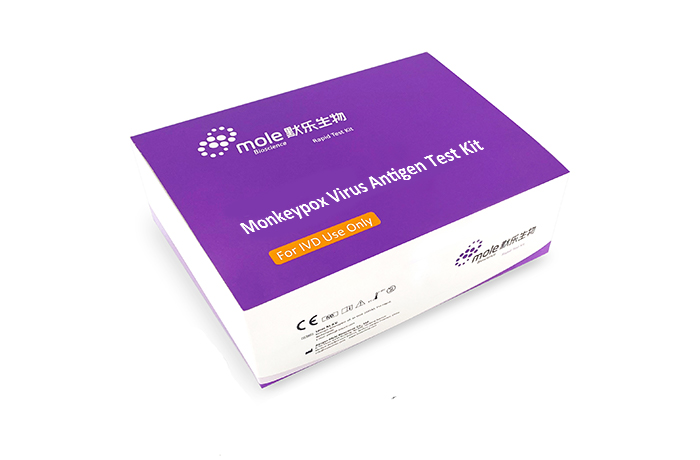
Monkeypox is a zoonotic disease caused by Monkeypox virus(MPXV), which is a member of orthopoxviral genus. Poxviruses belong to family Poxviridae, a large and diverse family of double-stranded DNA virusesthat multipliesin the cytoplasm of infected cells. The MPXV size are known to be 200 by 250nm.Membrane bond as well as densely packed core containing enzymes and transcription factors are protected by the outer membrane. Monkeypox virus wasfirstreported in 1959 as an outbreak of a pox-like disease in monkeys kept at a research institute in Copenhagen, Denmark. But there has been an epidemic trend of infecting people around the world recently.
Store at 2-30°C in the sealed pouch untilthe expiration date printedon the package (valid for 24months).
Positive Coincidence Rate: Testing the positive enterprise references, the positive coincidence rate should be 100%.
Negative Coincidence Rate: Testing the negative enterprise references, the negative coincidence rate should be 100%.
Limit of detection(LoD):The LoD of the test for the NP-protein of Monkeypox Antigen is approximately 100pg/ml. The LoD of the test for the Monkeypox virus is approximately 50 TCID50/ml.
Repeatability: The results of testing the three batches kit, the results shows a great consistency and color density.
Reproducibility: Different people test the three batches of kits at different locations, the color rendering results of the products are all consistent.